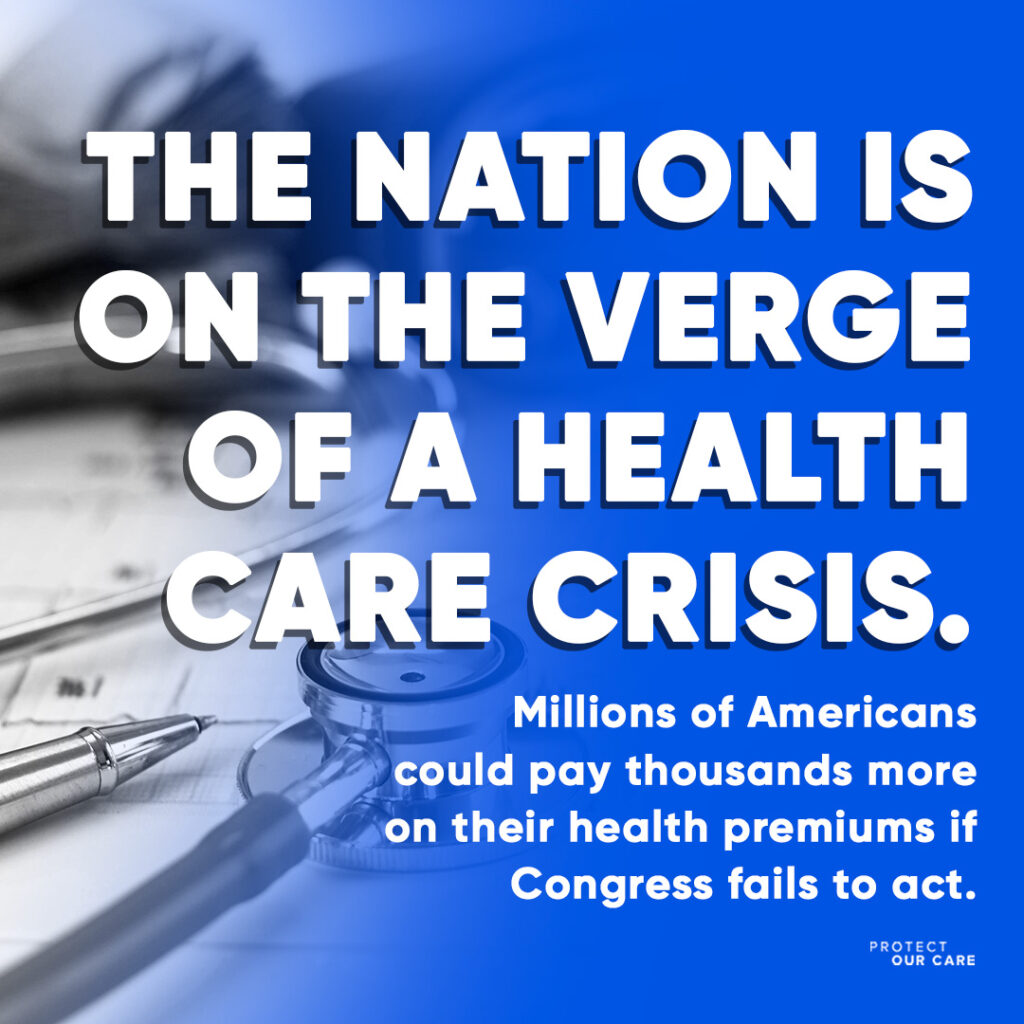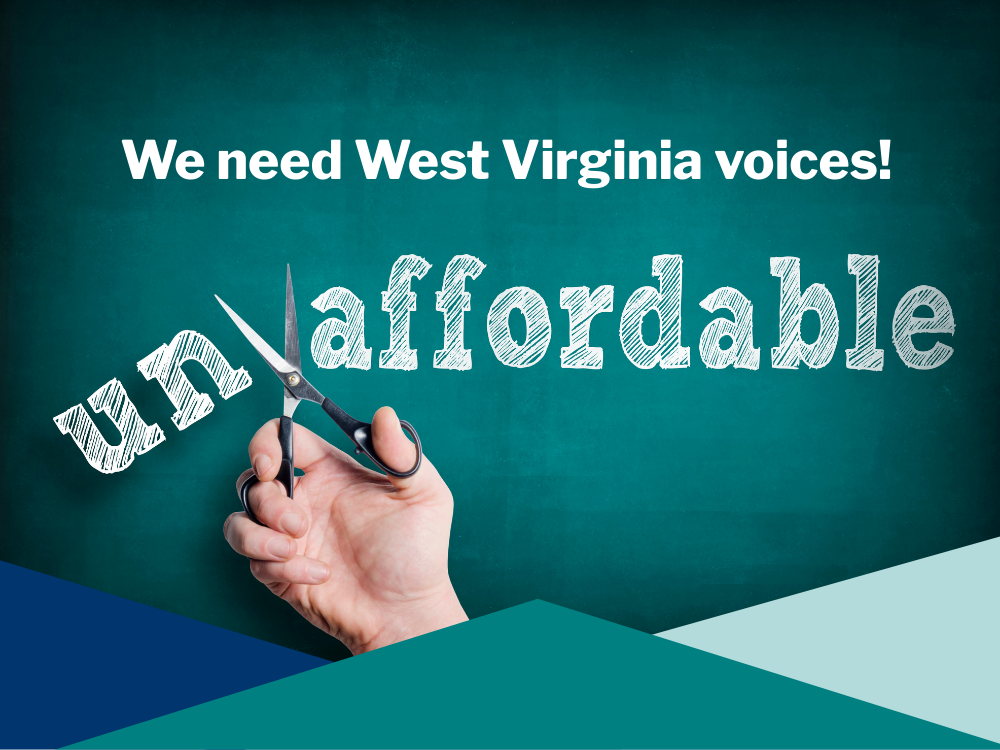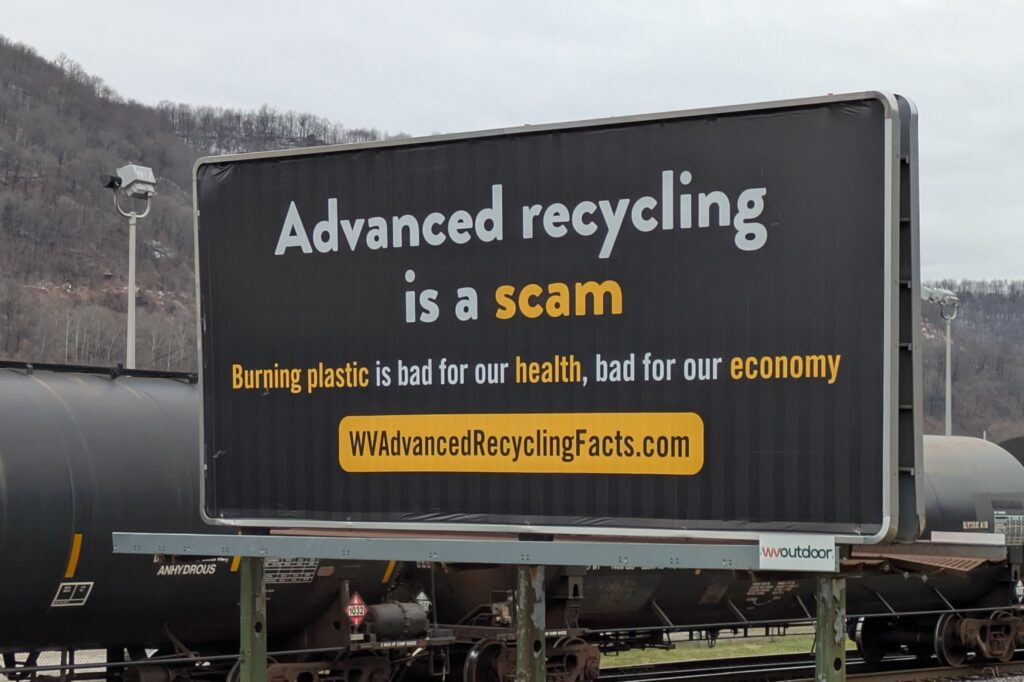- Like
- Digg
- Del
- Tumblr
- VKontakte
- Buffer
- Love This
- Odnoklassniki
- Meneame
- Blogger
- Amazon
- Yahoo Mail
- Gmail
- AOL
- Newsvine
- HackerNews
- Evernote
- MySpace
- Mail.ru
- Viadeo
- Line
- Comments
- Yummly
- SMS
- Viber
- Telegram
- Subscribe
- Skype
- Facebook Messenger
- Kakao
- LiveJournal
- Yammer
- Edgar
- Fintel
- Mix
- Instapaper
- Copy Link
West Virginia Citizen Action has been a part of the fight for Health Care for All for decades, along with many state and national partners. And, in 2022, we will definitely need your help to make health care policy and legislation a priority for our elected officials.
Our Health Care for America Now national partners have been in the good fight for almost 15 years. According to Margarida Jorge, Executive Director for HCAN, there is much to defend. “Our current context is fraught with opportunities and challenges. If conservative forces take power in the midterm and build that power leading to 2024, we’ll be back in a fight to defend basic access to all healthcare, to fight rising costs, to protect Medicaid and Medicare, and to retain access for marginalized groups. If progressives expect to retain power, they must redirect attention to the key issues that bring together the greatest number of people and secure the foundation for expanding access, rights and affordability.”
Key health care issues include:
- health care access, affordability and equity;
- fair taxation;
- attacks on abortion care access and civil rights for pregnant people.
As WV Citizen Action works towards educating the public and our electeds on these issues, there are a few key campaigns we would appreciate your help amplifying through a few calls or emails to our congressional members, and any social shares or letters to the editor you could lend.
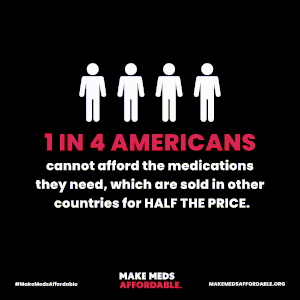 Make Meds Affordable
Make Meds Affordable
In our work with People’s Action, we are trying to help move action on Capitol Hill to make medications more affordable. Not only are we urging congress to pass legislation, but we are asking them to support lowering drug prices through executive action.
The high costs of prescriptions aren’t due to the high cost of research. They are due to unfettered profiteering. Between 2000 and 2018, pharmaceutical companies made $8.6 trillion in profits. And, taxpayers have annually invested more than $40 Billion in biomedical research through the NIH. Right now, U.S. law forbids direct government negotiations and other restrictions on pharmaceutical pricing. This has led to pharmaceutical companies making more money in the U.S. than the rest of the world combined for the 20 top-selling drugs.
Action is needed to change this, and to break pharmaceutical monopolies.
Eight-in-ten voters favor breaking patent monopolies to reduce drug prices. Moreover, using executive tools to lower drug prices while also supporting robust drug pricing legislation is the policy of the administration as expressed by President Biden in the executive order he signed last summer, Promoting Competition in the American Economy.
We need aggressive legislative reforms, and we need to ensure that the patent system does not “unjustifiably delay generic drug and biosimilar competition.” We need that competition to lower drug prices. Our people need lower drug prices now.
Especially in West Virginia, where so many of us are struggling with illnesses like diabetes, COPD, heart disease, cancer, and others, and nearly a quarter of West Virginians are living at or below poverty level. We simply cannot afford rising drug prices.
Any calls to Senator Manchin or Capito’s offices, asking to support compulsory licensing and breaking pharmaceutical patent monopolies are needed. You can also take action here: https://actionnetwork.org/forms/make-meds-affordable/.
Medicare Drug Price Negotiations
The fight is still on to allow for Medicare drug price negotiations by our government. Senator Manchin has stated his support for this, so we remain hopeful, but we still need calls to his office to make sure he doesn’t waver.
Johanna Kichton from People’s Action said last October that, “More than 80 percent of people support having the government negotiate with drug companies for lower drug prices. Virtually the only people who oppose this measure are drug company corporate executives and their lobbyists. Democrats have a once-in-a-generation chance to deliver for poor and working people who cannot afford the high cost of prescription drugs. It’s time to deliver.”
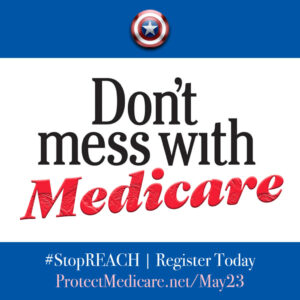 Medicare Privatization and REACH
Medicare Privatization and REACH
As I shared in my article last month, REACH invites third-party middlemen to “manage” the care of traditional Medicare beneficiaries. It also creates a financial incentive for these middlemen to deny medically necessary care, spending as little as 60% of what Medicare pays them on actual patient care — keeping up to 40% of revenues for their own profit and overhead. If left unchecked, the REACH program could radically transform Medicare within a few years, without input from seniors or even a vote by Congress.
Take action here (https://protectmedicare.net/take-action/), and contact our Congress members. Tell them they should demand answers, and an end to the REACH program, from the Biden administration.
Extending the Enhanced Premium Tax Credits
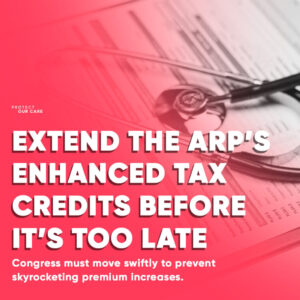 According to Protect Our Care, one of our national partners, the nation is on the verge of a health care crisis. “The health care savings under the American Rescue Plan are set to expire, which would mean millions of Americans will see dramatic increases in their 2023 health insurance premiums. Vermont already gave us the first glimpse into how this will play out across the country after private insurers proposed rate increases as high as 24 percent. Failure to extend the American Rescue Plan’s premium tax credits means nine million Americans would pay more for their health care at a time families are already concerned about keeping up with rising costs — and as many as three million Americans could lose coverage altogether. ”
According to Protect Our Care, one of our national partners, the nation is on the verge of a health care crisis. “The health care savings under the American Rescue Plan are set to expire, which would mean millions of Americans will see dramatic increases in their 2023 health insurance premiums. Vermont already gave us the first glimpse into how this will play out across the country after private insurers proposed rate increases as high as 24 percent. Failure to extend the American Rescue Plan’s premium tax credits means nine million Americans would pay more for their health care at a time families are already concerned about keeping up with rising costs — and as many as three million Americans could lose coverage altogether. ”
What will this mean for us here in West Virginia? Well, here’s some disturbing data:
- A 50-year-old West Virginian earning $25,000 will see a monthly premium hike of $93, a 344% increase, if the tax credits are not extended.
- A single parent with one child in West Virginia earning $50,000 will see a monthly premium hike of $164, or a 74% increase without continued federal subsidies.
- A West Virginia family of four with an annual income of $80,000 will see a monthly premium hike of $247, or a 64% increase without an extension of the American Rescue Plan’s tax credits.
Please contact our Congress members, remind them of the dire consequences if they fail to act. Tell them to extend the enhanced premium tax credits that have lowered health care costs for millions of Americans.
Take action at secure.everyaction.com/JWk-UyqKxkGhJcSqMOgT8w2.

